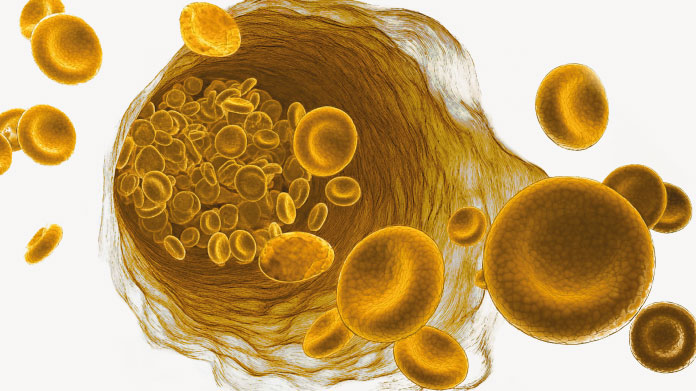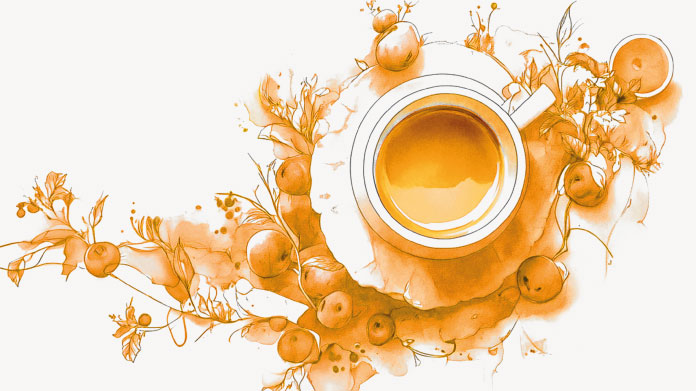
Spirulina, an exemplary superfood
Highly-bioavailable proteins, numerous minerals, carotenoids, vitamins A, B, E, K... Endowed with a truly exceptional nutritional content, spirulina is used in developing countries to fight malnutrition. Considered to be both algae and cyanobacteria, it grows best in warm water lakes in India, Chad and Mexico.
Spirulina helps to support the immune system, and maintain energy and vitality(1). It’s therefore an invaluable aid for people who are fatigued, overworked or who are convalescing. It also helps with weight control and appetite suppression (2).
The only drawback is that this impressive superfood absorbs various pollutants from its environment. If you’re thinking about taking spirulina, opt for a supplement produced using controlled aquaculture (such as Spirulina, an extremely safe supplement from Parry Organic Spirulina, the world’s best spirulina producer).
Garlic – the small clove that’s big on health benefits
Garlic fully deserves its reputation as a trusted home remedy. This small plant from the Alliaceae family supports good cardiovascular health and helps maintain normal blood cholesterol levels. It also supports good immune system function and has remarkable antibacterial properties (3).
Common white garlic is excellent, but black garlic is even better (4). Produced by fermenting heads of white garlic, it has a particularly high concentration of S-allyl-cysteine, a valuable organosulfur compound. It also contains polyphenols, flavonoids and selenium. What’s more, it won’t give you ‘garlic breath’ as it is allicin-free!
If you want to obtain its many benefits, choose a black garlic supplement (such as the product Organic ABG10+, an organic black garlic supplement standardised to 0.1% S-allyl-cysteine, the highest percentage on the market).
Set your sights on bilberries
Second World War pilots apparently ate them to help improve their vision on night flights, a move supported by modern science! With their antioxidant effects, bilberries (Vaccinium myrtillus) support visual health and function as well as playing a role in vein health (5-6). The remarkable effects of these extraordinary red berries come mainly from their content in anthocyanosides, also responsible for their beautiful dark purple colour.
A bilberry supplement is an excellent idea if you want to get the full benefits of this compound’s many properties (try, for example Bilberry Extract, a wild bilberry supplement standardised to 25% anthocyanosides).
Turmeric, Ayurvedic medicine’s star ingredient
While its lovely orange colour brightens up the golden lattes beloved of foodies, turmeric (Curcuma longa) was famous long before Instagram came along. Ayurveda’s ‘King of Spices’, this age-old root offers a plethora of health benefits. With its high content of curcuminoids (especially curcumin), it has an antioxidant effect and amongst others, supports:
- liver and digestive health (7) ;
- cardiovascular health (8) ;
- nervous and immune system function (9-10) ;
- skin health (11) ;
- appetite stimulation.
It’s a shame, then, that we tend to use just a pinch in our dishes! To get the most out of turmeric, try taking a concentrated supplement (such as Natural Curcuma, a premium turmeric extract standardised to 95% curcuminoids).
Klamath, a miracle algae
From the family of super algae comes the unique klamath! Known as Aphanizomenon flos-aquae or AFA by the scientific community, this micro-algae contains proteins as well as a wide range of vitamins and minerals (calcium, magnesium, iron …).
Besides its nutrient-rich composition, klamath helps to promote a positive mood as a result of its content in PEA, a neuroamine directly involved in regulating the nervous system (12).
A helping hand for beating the blues, klamath’s benefits are available in supplement form (such as the product AFA extract, an extract of klamath algae that grows wild within a protected ecosystem).
Maca, a remarkable root
Don’t be put off by its turnip-like appearance! Indigenous to the high plains of the Andes, maca (Lepidium peruvianum) contains surprising properties. With its ability to support sexuality and fertility and to help maintain good physical and mental health, this Peruvian ginseng serves as a natural tonic (13-14). Its well-deserved superfood status is due to two unique types of active compound: macamides macaenes.
It’s worth noting that various ‘ecotypes’ of maca coexist, each with its own specific strengths. For one targeted more at sexual health, opt for yellow maca (which features in Super Maca, an ethical supplement standardised to 0.6% macamides and macaenes for optimal efficacy).
Ginger, a recognised super-ingredient
A medicinal plant listed in French and European pharmacopoeia, ginger (Zingiber officinale) is brilliant for pampering our ‘insides’. An essential root that features in Ayurvedic texts, it helps to support digestion and immunity and even relieve travel sickness, due mainly to its high gingerol content (15-16).
To maximise your intake of these powerful phenolic compounds, take a ginger supplement (such as Super Gingerols, standardised to 20% gingerols).
References
- Hirahashi T, Matsumoto M, Hazeki K, Saeki Y, Ui M, Seya T. Activation of the human innate immune system by Spirulina: augmentation of interf. production and NK cytotoxicity by oral administration of hot water extract of Spirulina platensis. Int Immunopharmacol. 2002 Mar;2(4):423-34. doi: 10.1016/s1567-5769(01)00166-7. PMID: 11962722.
- DiNicolantonio JJ, Bhat AG, OKeefe J. Effects of spirulina on weight loss and blood lipids: a review. Open Heart. 2020;7(1):e001003. Published 2020 Mar 8. doi:10.1136/openhrt-2018-001003
- Ansary J, Forbes-Hernández TY, Gil E, et al. Potential Health Benefit of Garlic Based on Human Intervention Studies: A Brief Overview. Antioxidants (Basel). 2020;9(7):619. Published 2020 Jul 15. doi:10.3390/antiox9070619
- Gruenwald J, Bongartz U, Bothe G, Uebelhack R. Effects of aged garlic extract on arterial elasticity in a placebo-controlled clinical trial using EndoPAT™ technology. Exp Ther Med. 2020;19(2):1490-1499. doi:10.3892/etm.2019.8378
- Li J, Ruzhi Deng, Hua X, et al. Blueberry Component Pterostilbene Protects Corneal Epithelial Cells from Inflammation via Anti-oxidative Pathway. Sci Rep. 2016;6:19408. Published 2016 Jan 14. doi:10.1038/srep19408
- Wood E , Hein S , Heiss C , Williams C , Rodriguez-Mateos A . Blueberries and cardiovascular disease prevention. Food Funct. 2019 Dec 11;10(12):7621-7633. doi: 10.1039/c9fo02291k. PMID: 31776541.
- Buonomo AR, Scotto R, Nappa S, et al. The role of curcumin in liver diseases. Arch Med Sci. 2019;15(6):1608-1620. doi:10.5114/aoms.2018.73596
- Wang NP, Wang ZF, Tootle S, Philip T, Zhao ZQ. Curcumin promotes cardiac repair and ameliorates cardiac dysfunction following myocardial infarction. Br J Pharmacol. 2012;167(7):1550-1562. doi:10.1111/j.1476-5381.2012.02109.x
- Kulkarni SK, Dhir A. An overview of curcumin in neurological disorders. Indian J Pharm Sci. 2010;72(2):149-154. doi:10.4103/0250-474X.65012
- Gao X, Kuo J, Jiang H, Deeb D, Liu Y, Divine G, Chapman RA, Dulchavsky SA, Gautam SC. Immunomodulatory activity of curcumin: suppression of lymphocyte proliferation, development of cell-mediated cytotoxicity, and cytokine production in vitro. Biochem Pharmacol. 2004 Jul 1;68(1):51-61. doi: 10.1016/j.bcp.2004.03.015. PMID: 15183117.
- Vollono L, Falconi M, Gaziano R, et al. Potential of Curcumin in Skin Disorders. Nutrients. 2019;11(9):2169. Published 2019 Sep 10. doi:10.3390/nu11092169
- Nuzzo D, Presti G, Picone P, et al. Effects of the Aphanizomenon flos-aquae Extract (Klamin®) on a Neurodegeneration Cellular Model. Oxid Med Cell Longev. 2018;2018:9089016. Published 2018 Sep 17. doi:10.1155/2018/9089016
- Shin BC, Lee MS, Yang EJ, Lim HS, Ernst E. Maca (L. meyenii) for improving sexual function: a systematic review. BMC Complement Altern Med. 2010;10:44. Published 2010 Aug 6. doi:10.1186/1472-6882-10-44
- Zhu H , Xu W , Wang N , Jiang W , Cheng Y , Guo Y , Yao W , Hu B , Du P , Qian H . Anti-fatigue effect of Lepidium meyenii Walp. (Maca) on preventing mitochondria-mediated muscle damage and oxidative stress in vivo and vitro. Food Funct. 2021 Apr 7;12(7):3132-3141. doi: 10.1039/d1fo00383f. Epub 2021 Mar 17. PMID: 33729250.
- Lete I, Allué J. The Effectiveness of Ginger in the Prevention of Nausea and Vomiting during Pregnancy and Chemotherapy. Integr Med Insights. 2016;11:11-17. Published 2016 Mar 31. doi:10.4137/IMI.S36273
- Nikkhah Bodagh M, Maleki I, Hekmatdoost A. Ginger in gastrointestinal disorders: A systematic review of clinical trials. Food Sci Nutr. 2018;7(1):96-108. Published 2018 Nov 5. doi:10.1002/fsn3.807
43 Days
Very happy with the order and the…
Very happy with the order and the prompt team's response to an identified issue with my order.
KUQI Fatmir
50 Days
15 + years as a customer
I have been using their products for over 15 years as I find both the quality and pricing excellent.
Del Chandler
52 Days
Good quick delivery
Good quick delivery
Timothy O Shea
53 Days
Good service
Good communication following order. Product came within the time frame and was well packaged. The only confusing thing I found was in checking out. For some reason it is not clear how to do so and the current system should be improved.
Joe O Leary
62 Days
Simple and fast.
Simple and fast.
Nina
63 Days
Great product was definitely what is…
Great product was definitely what is says and arrived on without issue
customer
69 Days
I love reading those product facts on…
I love reading those product facts on Supersmart.com. Effective health products making permanent changes to my blood-work results and testes. However, I also have to order capsules from other websites.
NORDGULEN Olav
71 Days
Great products
Great products Very easy to choose, to order… and to get at home
Federica mastrojanni
74 Days
Service rapide et bons produits
Service rapide et bons produits
customer
75 Days
Good products and fast delivery
Good products and fast delivery
Trusted
80 Days
Does what it says on the can
I believe in this product Made to highest standard The ordering process is straightforward Delivery time prompt Excellent product, excellent service Happy customer ❤️
Sheba Kelleher
85 Days
Excellents produits
Excellents produits. Rien à dire si ce n'est qu'ils sont très chèrs.
MJS_France
87 Days
Very good supplement
Very good supplement
Glaveash
88 Days
Supersmart supplements are really…effective
Supersmart supplements are really effective and have helped me and family members and friends to improve their health including some of us with severe health problems including some with no existing medical treatment.
Anne Georget
90 Days
SuperBig Supersmart
SuperBig Supersmart
Pierre



